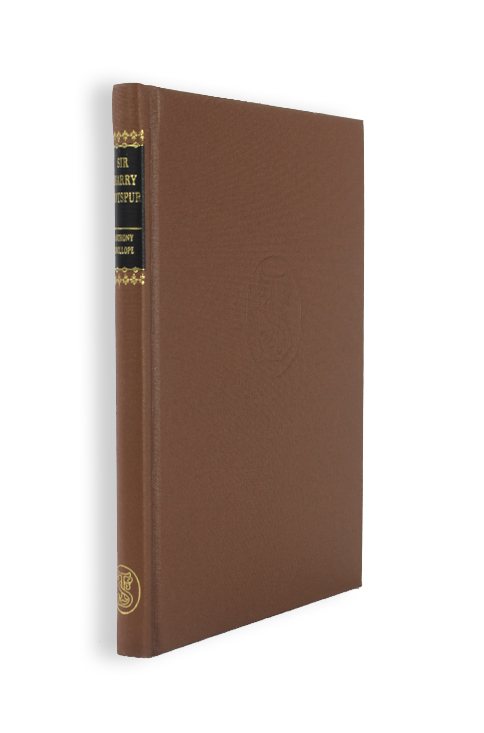Sir Harry Hotspur of Humblethwaite
£20.00
Available to members only
Introduction by Sue Bradbury
172 pages
London, Hurst and Blackett, 1871.
Originally published in Macmillan’s Magazine, May-Dec. 1870.
Out of stock
This is a novel about the death of the heart: perhaps the closest Anthony Trollope ever came to genuine tragedy. One of his shorter books, it sustains his fascination with the pursuit of hereditary titles and wealth through well-connected marriages: as with many of his other novels, it is proven to be a particularly empty pursuit, and one that is painfully inadvisable.
Trollope chose to set it mainly in the fells of Cumberland, in a place he called Scarrowby. Michael Sadleir points out that the description of Humblethwaite Hall is ‘the most arresting description of a big country house in the whole of Trollope’s work’. Whereas in Lady Anna, the plot moved on the increasingly desperate attempts to unite a title with money and property through an arranged marriage, here Trollope turns the idea on its head. It deals instead with Sir Harry Hotspur’s attempts to prevent such a situation occurring.
After the death of his only son and heir, Sir Harry finds that under the laws of primogeniture his title will go to a distant relative, George Hotspur, a charming and utterly worthless young man who survives on the income of his mistress – an actress – whilst gambling and drinking his days away. Sir Harry plans to leave his fortune and ancestral home to his daughter Emily, with the expressed hope that any suitable husband might be persuaded to adopt the family name.
Despite the strong misgivings of her father, Emily – as strong-willed as Sir Harry – is wooed by the feckless George, who understands the opportunity for both title and fortune: to him she is merely a pawn. Although Emily recognises his shortcomings, she unwittingly falls in love with her suitor, considering herself the only woman capable of ‘saving’ him. The novel plots her slow disillusionment, but too late to spare her feelings.
As with any Trollopian debate of this kind, the real question asked is whether a title, name or fortune is ultimately worth any sacrifice. Trollope wrote that, with this particular novel, he had in mind ‘the telling of some pathetic incident in life’, and Sir Harry Hotspur is a tragedy told in miniature. The depiction of Emily Hotspur is one of his most affectingly-drawn characters, yet it is typical of Trollope’s detachment and lack of sentiment that he retains a small, sharp dagger to provide a savage twist in the book’s closing pages.
